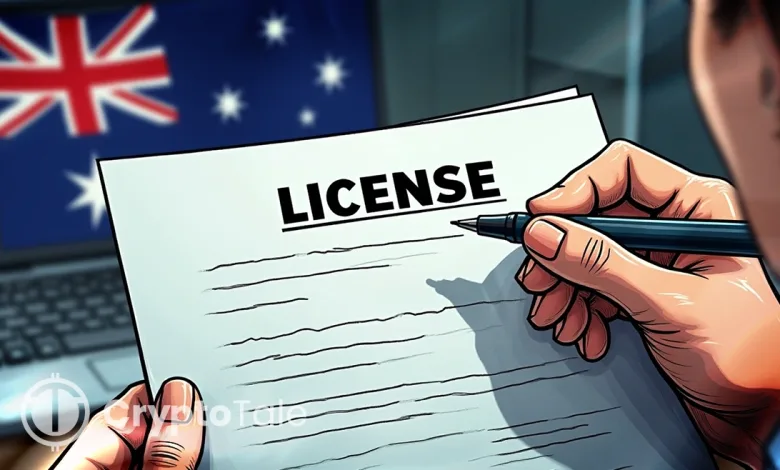Australia Proposes Crypto Licensing Under Financial Laws

- Australia proposes new financial laws to regulate crypto exchanges and service providers.
- The law focuses on client asset custody, excluding creators and non-financial token uses.
- Industry leaders like Coinbase and Kraken back the draft, citing clarity and protections.
Australia is preparing to reshape its crypto market with a sweeping draft bill. The Treasury has proposed legislation that would require crypto platforms, including exchanges and custody providers, to obtain financial services licenses. The move represents one of the country’s most ambitious efforts to align digital assets with traditional financial laws.
Draft Bill Targets Exchanges and Custody Platforms
The draft legislation would amend the Corporations Act 2001. It introduces digital asset platforms and tokenized custody platforms as financial products. This change would automatically place them under the same licensing and compliance rules applied to portfolio operators.
The Treasury clarified that the framework focuses on businesses holding assets for clients. It does not regulate the assets themselves. Officials said this focus was shaped by recent failures of intermediaries that caused large consumer losses in Australia.
Under the proposal, the Australian Securities and Investments Commission (ASIC) would issue licenses. Platforms failing to comply could face heavy fines. Penalties would be set at the greater of AUD 16.5 million, three times profits gained, or 10% of annual revenue.
The consultation period runs until October 24, 2025. Stakeholders, including industry players and consumers, can provide feedback on the proposed rules before implementation. Presently, crypto platforms in Australia only need to meet anti-money laundering and know-your-customer requirements. The new law would bring a far broader scope of obligations.
Regulators and Industry React
Federal Assistant Treasurer Daniel Mulino presented the bill during the Digital Economy Council summit. He said the framework would extend existing laws in a targeted way. He added that the new approach would nurture innovation while shielding consumers from harm. Mulino stressed that regulation would give investors confidence in digital assets. He said the framework aims to recognize good actors while removing rogue operators.
Crypto companies welcomed the consultation draft. Coinbase’s Australian director, John O’Loghlen, said clear regulation would support growth and global competitiveness. He confirmed Coinbase plans to work constructively with the government and industry during the process.
Kraken’s general manager, Jonathon Miller, said he was pleased the draft was published after long collaboration with regulators. Industry leaders emphasized that clarity would help legitimize digital assets while improving investor protections.
Related: SEC and CFTC Roundtable Seeks Clear Crypto Oversight Rules
The draft excludes creators of digital assets and companies using tokens for non-financial purposes. Tokens tied to video games or artistic NFTs remain outside the scope. However, tokens functioning as financial products will remain under ASIC’s oversight. The regulator will issue further clarification in November on which tokens require licenses.
Smaller platforms will also have exemptions. Services handling under AUD 10 million in yearly transactions and holding less than AUD 5,000 per client will not require full licensing.
The government is also moving ahead with stablecoin regulation. Officials plan to include stablecoins within a broader payments licensing framework. The Australian Prudential Regulation Authority (APRA) may oversee stablecoin issuers once the new regime is active.
The Treasury emphasized that the draft law builds on lessons from failures at home and abroad. It aims to increase safeguards while supporting tokenized financial innovation. Australia joins a growing number of jurisdictions seeking to integrate crypto into mainstream financial regulation. Policymakers argue that harmonizing oversight can boost trust while preparing markets for tokenized assets at scale.




